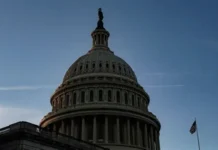Chadema national chairman Tundu Lissu on Monday delivered a lengthy statement in court, detailing what he described as severe violations of his rights during his detention at Ukonga Maximum Security Prison in Dar es Salaam.
Mr Lissu, who is facing charges of treason and publishing false information online in two separate cases, spent over 40 minutes narrating the conditions he has endured since his arrest. Both cases resumed yesterday, June 16, 2025, before two different magistrates, each at a different procedural stage.
The treason case is being presided over by Kisutu Resident Magistrate-in-Charge Franco Kiswaga. During the hearing, Principal State Attorney Nassoro Katuga informed the court that investigations had been completed and the case file had been forwarded to the Director of Public Prosecutions (DPP), who would decide whether to commit the case to the High Court.
The case was adjourned to July 1, 2025.
Before the adjournment, Mr Lissu requested permission to address the court after his lead counsel, Mr Mpale Mpoke, introduced a legal team of more than 30 advocates, including Lissu’s brother, advocate Alute Mughwai.
Upon receiving the court’s permission, Mr Lissu thanked his legal team for their commitment and professionalism, before requesting to take over his own defence.
“I thank my lawyers for fighting with courage and skill. They have fulfilled their responsibilities and done an excellent job. But from this point forward, I wish to defend myself in court,” said Mr Lissu.
The former president of the Tanganyika Law Society (TLS) told the court that during his 68 days in detention—first at Keko Prison for one week and then at Ukonga—his legal team has been denied private consultations with him.
“At Ukonga Prison, consultations take place in a reception area where lawyers and inmates are separated by a glass wall. We communicate through a telephone, without privacy or the ability to exchange documents. There is no chair or writing surface. I have repeatedly insisted on my right to consult my lawyers privately, but the prison authorities have refused,” said Mr Lissu.
He added that even when permission was eventually granted for a meeting, it was under the watch of prison officers. “The phone I use—who knows if it’s being recorded? Who is to say our conversations aren’t being monitored? This is contrary to all legal norms,” he told the court. Mr Lissu stressed that under prison regulations, only a court has the authority to limit access to legal counsel—not a prison official.



















